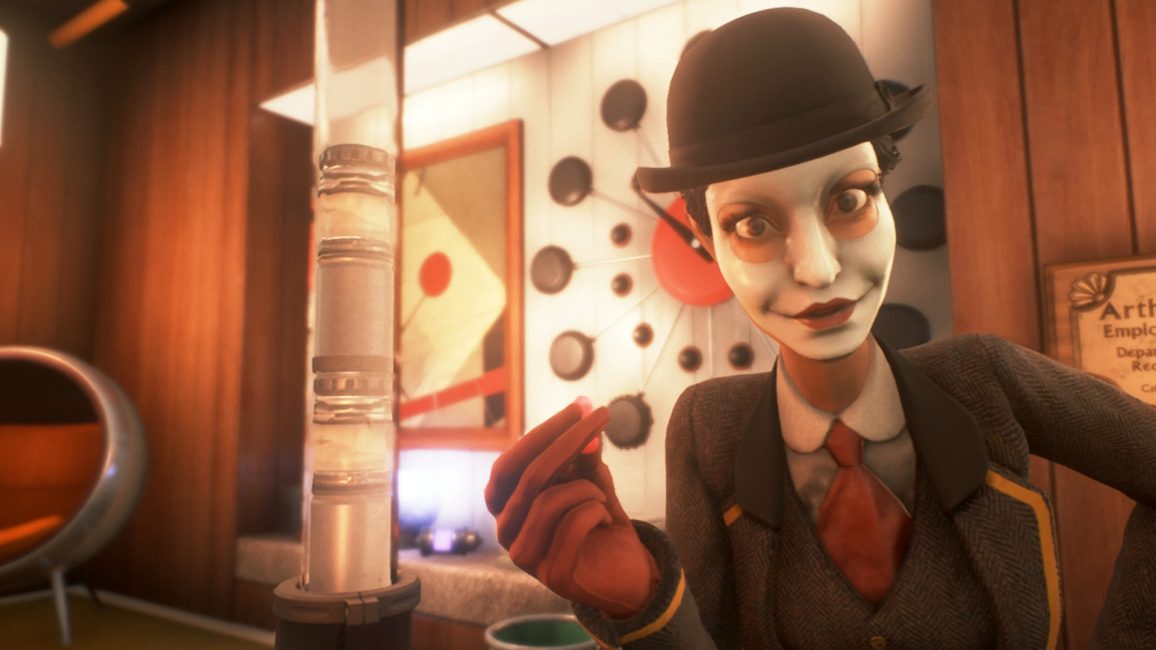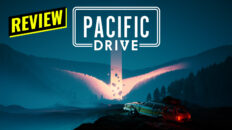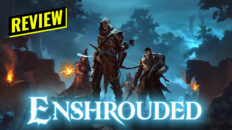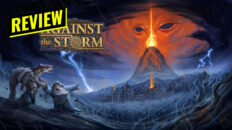Developer: Compulsion Games
Publisher: Gearbox Publishing
Reviewed on: Xbox One
Purchased.
On paper, We Happy Few is a doozy of a concept. Take the retro dystopian themes and influences of, say Terry Gilliam’s Brazil, with a smattering of Kubrick and Orwell, filter it through a psychedelic 60s Britain aesthetic, added to an open world survival/stealth/loot/crafting loop. In reality, We Happy Few is a doozy of a concept in search of a cohesive framework.
In an alternative post-WWII timeline in which the United Kingdom was lost to Germany and entirely occupied by the Nazis, the island town of Wellington Wells strikes a horrid, unspoken deal that cause Nazi occupation to voluntarily leave the island. he overwhelming guilt brings about the invention of the drug Joy, which drowns out misery and unhappy thoughts, and replaces them with a chemical euphoria and an almost psychedelic enhancement of their environment. There are side effects; addiction, loss of short term memory and, beneficial to the Wellington Wells authorities, susceptibility to manipulation. By the time we catch up in Wells, it’s the 1960s and isolation has borne strange fruit; technology has advanced far beyond expectations, with advances in portable Tesla power being at the fore. The Joy community are referred to as Wellies, wearing white Happy Face masks as a token of their adoption of the drug. The embracing is used to the authorities’ advantage, who adopt media manipulation and propaganda to control the masses. However, those immune to Joy are banished to the outskirts, named Wastrels, and shunned. Voluntary Joy rejection brands you a Downer, pursued and hounded in what is now a dystopian police state.

To fully explain how we receive We happy Few in its current form, it’s fitting to explain the genesis of the project more than most games would require. Announced in 2015 and released to Early Access in 2016, the game really turned heads with a great narrative scene that set the story and tone,and which still opens the game today. What did not please people when it was initially released was the framework and gameplay loop. No story to back up the intro, a scavenging and crafting sandbox with no context, overtly punishing eat/sleep/drink cycles and incredibly ineffectual combat and stealth mechanics. Needless to say, people were more than disappointed, and Compulsion came forward to state it as an extreme work in progress, and open to any suggestions from the community. To their credit, almost all of the wish list has been implemented, but the execution leaves something to be desired.
The one thing that was not necessarily planned – an overarching narrative – is now arguably its most successful element. The sense of world building, narrative structure and character work is very
compelling, and drives you forward though the game’s more wobbly elements. There have been other welcome tweaks; the health management system has been toned way down, reducing at a far fairer rate and only really resulting in a debuff. Another potential drag could have been the loot and crafting system. The game is very scavenge heavy, but navigating your inventory is never the chore games like this tend to become. The crafting is generally hassle free, falling into a nice and clean blueprint system that ensures that you’re always a simple click of a button away from your required item or weapon. In a way, the additions suggest a comparison to the original to current updated form of No Man’s Sky, although the implementation of the core mechanics leave far more to be desired.

The core combat at first seems undercooked. Your wallflower protagonist Arthur seems incredibly ineffectual in action, with stiff and weedy attacks even when traveling down a combat heavy skill tree in the RPG upgrade system. At first it can be frustrating, but playing out the game shows a three act narrative with three playable characters,the combat is far more effective depending on who you’re controlling. However, it is arguable that starting out so weak kneed in a 40-plus hour game may have been a miscalculation. Having said that, within the context of the game, combat should be a last resort in favour of stealth. Sadly, the enemy AI is eccentric at best and broken at worst. Some enemies will look straight at you and not act, other times they will spot you through solid objects, meaning you’re never quite sure when to give the benefit of the doubt to the situation. Using objects as a distraction also tends to be an issue, as the game randomly decides which enemy your bottle is locked onto. That lack of tweaking also leans into the presentation. For all of its fantastic and compelling eye-catching design, there are a remarkable amount of corners cut. Character models are reused outrageously frequently, it’s not uncommon to see three of the same NPC models standing directly next to one another. It isn’t an uncommon issue – the last Hitman for instance had those issues in crowded scenes – but the distinctive designs make it far more problematic. Then there’s the graphical glitches. For example, it isn’t unusual to see an NPC sitting on a bench reading a paper suddenly float off down the street as if they were riding an invisible motorised couch.
Reviewing We Happy Few is difficult because it depends on how much mileage you get from the aesthetics and concept despite the fundamental flaws in the mechanics. Personally, it made me persevere far further than a game with less conceptual vision might, but there’s no denying that it can be a big ask for somebody going into it both fresh and at the price point that new publisher Gearbox pushed upon it ($60), when compared to it’s $40 Early Access price. I honestly don’t understand why more resources weren’t allocated to the project. Gearbox essentially banged a square indie peg into a AAA round hole, losing any last bit of “small team with big ideas” goodwill that the game may have afforded. Although I can personally look past that, I couldn’t in all good conscience ask a curious customer to do the same.








